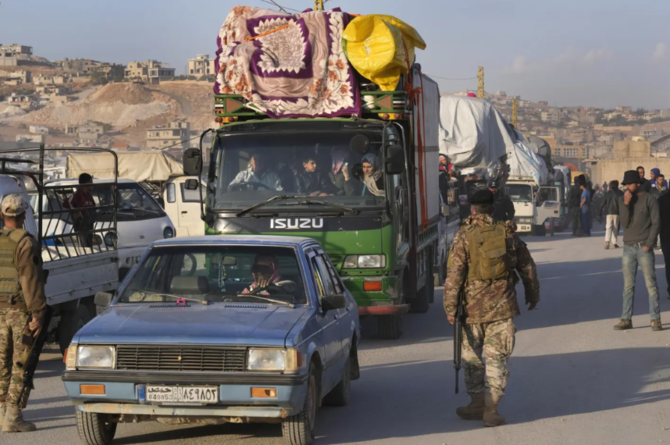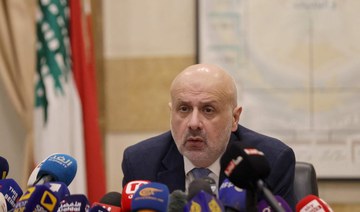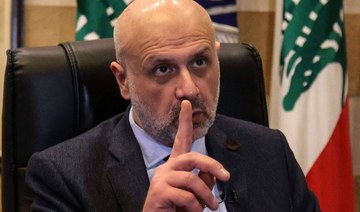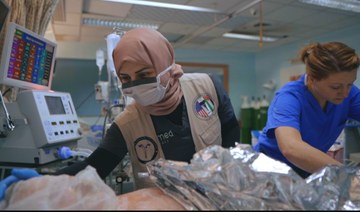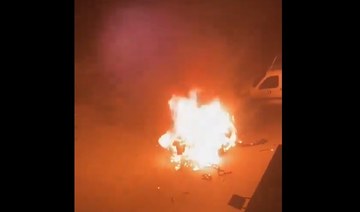BEIRUT: The UN High Commissioner for Refugees reiterated on Tuesday “the right of Syrian refugees in Lebanon to return freely to their homeland whenever they choose to do so.”
It came as the campaign against the continued presence of Syrian refugees in Lebanon intensified against the backdrop of a number of crimes committed by Syrians in recent weeks.
The latest incident was the killing of an official in the Lebanese Forces Party, Pascal Suleiman, last week after his car was stolen and his body taken to the Lebanese-Syrian border.
It was preceded a few days earlier by another crime committed in the Achrafieh area in Beirut against a husband and wife by their Syrian maid and other Syrians in an intended robbery. The husband died following the incident and his wife was seriously injured.
On Tuesday morning news broke of the death of Lebanese man Yasser Al-Kokash in the town of Al-Azzounieh in Aley district at the hands of Syrian citizens after they tied him up and stole the contents of his apartment.
Syrian refugees started coming to Lebanon in 2011. The number of refugees registered with the UNHCR has officially dropped to less than a million people after some subsequently returned to their country. However, after the UNHCR stopped registering Syrian refugees in 2015, the rate of illegal crossings from Syria to Lebanon increased.
Lebanon estimates the number of Syrian refugees on its territory to exceed 2 million people.
Caretaker Minister of Interior Bassam Mawlawi estimated the percentage of Syrian detainees and convicts in Lebanese prisons to be about 35 percent of the total prison population.
The Lebanese General Security has organized voluntary repatriation trips for Syrian refugees, but only a few thousand refugees have returned, as the Syrian regime decides who can according to lists of names provided by the Lebanese General Security to the relevant Syrian authorities.
In a statement, UNHCR spokeswoman Dalal Harb said: “We support and respect the humanitarian right of refugees to return freely and voluntarily to their home country, whenever they choose to do so, in accordance with international principles and non-refoulement.”
Harb stressed that “most Syrian refugees express their desire to return to Syria, but their decision is based on several factors, including safety, security, housing, access to basic services, and securing livelihoods.”
He added the UNHCR “will continue to cooperate with the General Directorate of General Security, which facilitates the repatriation of the refugees who want to return to Syria by registering their names.”
Ahead of the Brussels Conference on Refugees on April 30, Lebanon has urged donors to secure assistance to cover the cost of the Syrian presence in the country.
Minister of Information Ziad Makary said on Tuesday: “The illegal infiltration of Syrian refugees through the sea from Lebanon into Cyprus has caused a diplomatic crisis.
“The crimes that have occurred made us focus more on this existential problem for Lebanon. The solution is for them to either return to Syria or go to a third country.”
A plan proposed by the ministers of labor and social affairs, the Maronite League, and the General Directorate of General Security has also been addressed, which aims to repatriate Syrians and calls for the establishment of a National Emergency Authority headed by the prime minister.
It will be in charge of communicating with UNHCR officials in order to assist the state in classifying Syrians into three categories.
The first includes Syrians registered with the UNHCR as refugees and who can return to safe areas of their country. The second category includes Syrians who are registered with the UNHCR as refugees and work in Lebanon, while the third includes those who are registered with the UNHCR as refugees and want to travel to a third country.
As for the Syrians residing illegally in Lebanon, a “ministerial committee headed by the interior minister will be in charge of putting together lists of names indicating whether those Syrians have a valid residency or an expired one, and whether they have any documentation.”
The plan also stipulates that “land borders will be controlled, as it appeared that infiltration is mostly happening for economic reasons rather than security reasons.”
A delegation headed by Lebanese Forces MP Sethrida Geagea met Interior Minister Bassam Al-Mawlawi on Tuesday. Geagea called for “the implementation of the interior ministry’s circulars related to handling the illegal Syrian presence.”
Geagea estimated the number of Syrian refugees “in the northern Christian cities, Mount Lebanon and Jezzine to be around 830,000.”
She said that “implementing these circulars allow us to reduce the number of refugees very soon,” adding: “According to the United Nations, Lebanon is not a country of asylum, but a country of transit. We’ve been tolerating this since 2011, but we cannot do this anymore.”



